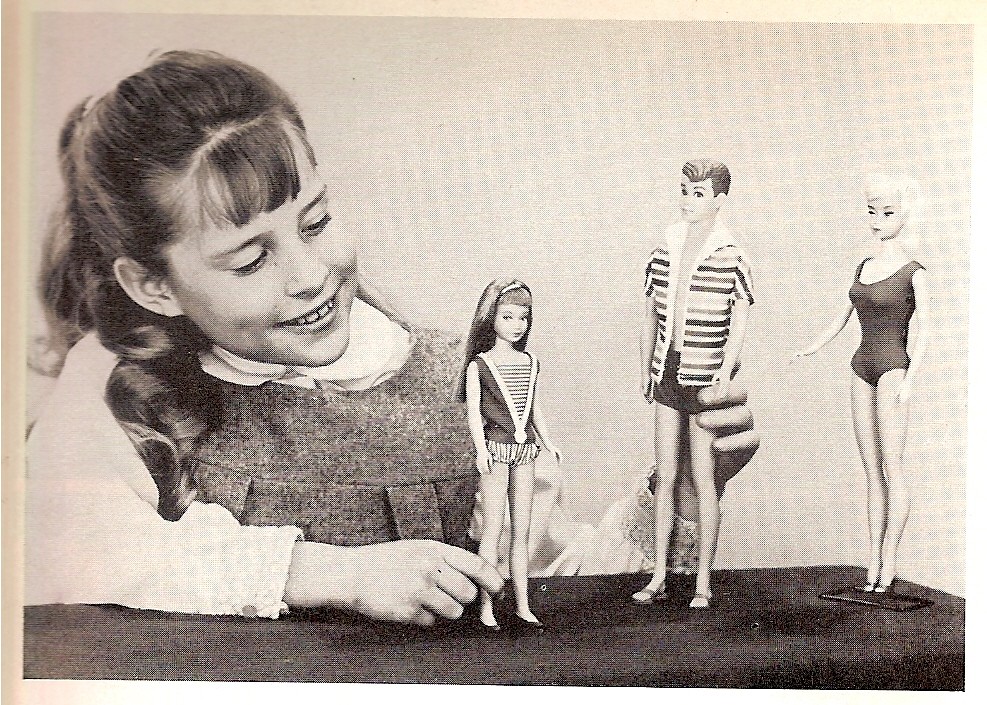OPINION
Kimberly Ells
Kimberly Ells is the author of The Invincible Family. Follow her at Invincible Family Substack.
One of the brightest moments of my young life was when I got TWO Barbies (one blonde, one brunette) for Christmas. So on wings of nostalgia but feeling undercurrents of dread, I set off to see the latest Barbie movie with my 18-year-old Barbie-loving daughter. We weren’t sure what to expect as a tsunami of pink hit the screen, but what ensued was slightly clever and significantly unsettling.
The movie delivered some solid nostalgia for any female child raised in the past 50 years. Lots of nods to vintage Barbie dolls and accessories was enough to make any Barbie enthusiast proud. (Barbie even had a heart-shaped waffle with plastic whipped cream for breakfast.) There were nuggets of actual truth spoken by characters at a couple of key moments; I heard the audience erupt in a sincere chuckle twice, and the cast was formidable.
But these bright spots were obscured not only by insistent political posturing and senseless dance numbers by the Ken dolls, but by the overarching message of the movie: babies, men, and families don’t matter.
To unpack the crux of the film, we don’t have to go past the first three minutes.
In the prologue sequence, we see little girls sitting in a barren landscape feeding, rocking, and morosely playing with baby dolls. Suddenly, Barbie descends like a bathing-suit-clad monolith. The little girls gaze at Barbie in wonder. Their wonder turns to rage as they take up their porcelain baby dolls by the feet and start smashing their heads to smithereens. They bash their baby’s heads against each other, bash them on rocks, and laugh in glee as fragments of their exploding skulls fly everywhere. We watch the whole thing in slow motion.
My daughter looked over at me with wide eyes and a touch of horror.
And so it was done. The little girls gave up their fetish for babies, dismembered their babies with their own hands, and went off to pursue a Barbie-like existence of childlessness, happiness, and selfishness. (I’m sure Planned Parenthood liked that part.)
The rest of the movie unfolds like this: Barbie lives blissfully in Barbieland where Barbies run everything, but because of a rift in the cosmos Barbie ends up in the real world where everything is run by men. She’s horrified, but Ken (who was a purposeless accessory in Barbieland) loves this new world and embraces “the patriarchy” with a vengeance. The juxtaposition of the woman-run world and the man-run world is supposed to fill us with indignation about the state of women in the world today.
But here’s the thing. If babies have been struck from the script of humanity—as was deftly done in the skull-crushing prologue—it doesn’t really matter who runs anything. If Barbies lack genitals (as they do in Barbieland) and there are no babies on the way, life loses massive meaning. Mothering disappears, fathering disappears, and the need for cooperative roles focused on the well-being of children disappears. In that case, yes, patriarchy-hating Barbie has a great point and Barbies might as well take over the world in an avalanche of pink.
But see, that’s not how the world really is. The movie tried yet again to do what radical feminism has tried to do for the past 70 years — sidestep the fact that babies exist, that babies come from mothers, and that the kind of mothering a child receives largely determines the child’s success in every measurable way for the rest of her life.
What rarely seems to occur to women who make these kinds of movies is that “the patriarchy” may exist for the purpose of serving, helping, and supporting women and the children they bear.
The movie attempts to show that women in the real world are purposeless accessories if they’re not sitting in a boardroom. But they’re not. When a woman has a baby, and most women do, she is needed as the mother of that child. In fact, you might say that she is essential. Of course, she is highly capable of contributing and having purpose in other ways including the business sector or any other sector, but her child might need her more than Goldman Sachs needs her for part of her life. If a woman is not sitting in a boardroom, it doesn’t mean she’s sitting around in a purposeless, powerless stupor crimping her hair or shopping for stilettos. The fact is, she has supreme purpose and matchless power.
If it truly didn’t matter who cared for a child, we could just ship children off to boot camps (or bash their heads in), Barbie could dominate the boardroom, and the Kens of the world could endlessly play the guitar and ride horses, as they do in the movie. But because the cooperative anatomy of men and women in the real world creates babies, babies must be dealt with.
And being able to deal with them well is what makes a person a grown up.
At the end of the movie, Barbie gets a vagina. My guess is that when she figures out what it’s for and a baby comes out of it, she’ll really be wishing Ken was around. But Barbie and Ken spend much of the movie fighting over which one of them gets to live in the dreamhouse. It’s Ken who finally says, “I always thought this would be our house.”
But that isn’t the answer for modern Barbie. There can’t be cooperation and complementarity and equal partnership worked out in a house together. No, there must be endless competing for the throne.
Barbie and Ken need to figure out that the throne is a loveseat, and there’s room for two.

